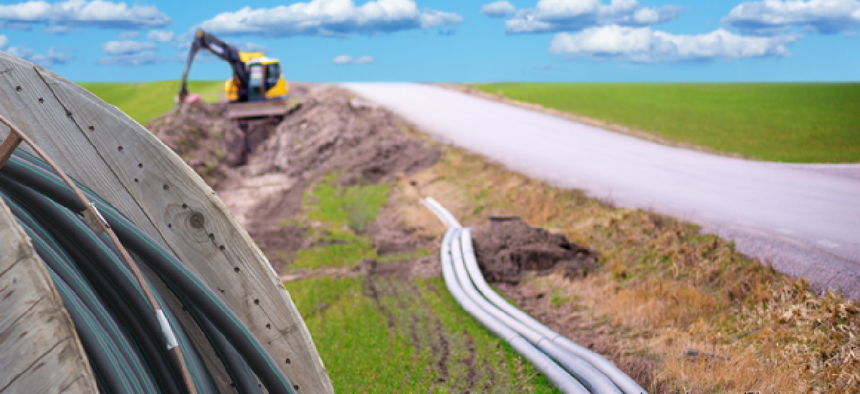For rural America, IoT innovation starts with better broadband


Connecting state and local government leaders
In a hearing to examine advancing the use of the internet of things in rural communities, testimony focused on a more fundamental issue -- expanding broadband deployment.
In a Nov. 7 hearing to examine advancing the use of the internet of things in rural communities, testimony focused on a more fundamental issue -- widespread broadband deployment.
In testimony before the Senate Commerce Committee's Communications, Technology, Innovation, Angela Siefer, director of the National Digital Inclusion Alliance, said, “The first step toward such a strategy is to improve access and adoption data."
Siefer urged the Federal Communications Commission to provide more accurate data on what areas had reliable access to the broadband internet.
Additionally, the FCC's recent lowering of baseline upload and download speeds in its definition for broadband, she said, would artificially inflate the progress being made on broadband expansion. Siefer's organization represents community organizations that seek to reduce digital disparities.
The committee chairman, Sen. Roger Wicker (R-Miss.), said in his opening statement that “in addition to accelerating the deployment of broadband in our rural areas, cybersecurity will be key to advancing the economic success of the internet of things market.”
Sen. Maggie Hassan (D-N.H.) echoed that concern, and pointed to the 2016 IoT-enabled direct denial of service attack on Dyn servers that crashed websites across the internet.
Legislation has already been introduced to try to secure the IoT, committee members said.
The IoT Cybersecurity Act of 2017 would introduce standards for these devices bought by the federal government, and the Cyber Shield Act of 2017 would create an Energy Star-like label indicating devices have met security standards.
Siefer said security is critical to broadband expansion because people won’t use the internet if they’re afraid of it. And Michael Terzich, the chief administrative officer at Zebra Technologies, agreed that increased standards and regulations could be necessary for consumer devices. “I do think more controls need to be imparted on device manufacturers,” he told the senators.

NEXT STORY: Making the network the best line of defense from the inside out




